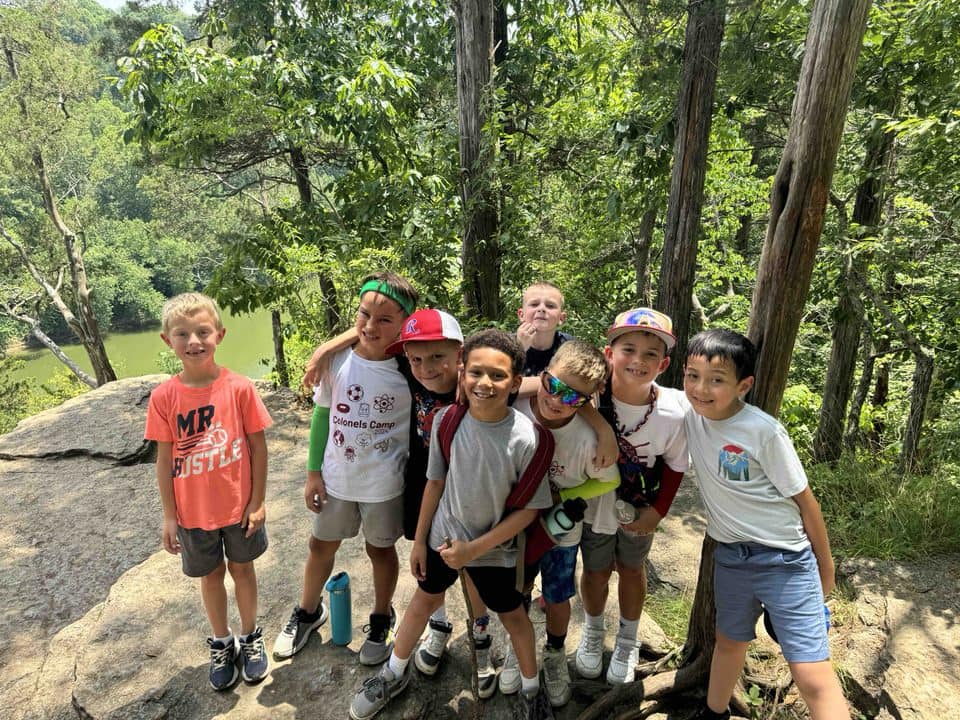From weekly themes to local field trips, campus rec professionals are rethinking summer camps to support students, boost revenue and build lasting relationships with the community.
Summer camps have become more than just a seasonal program for campus recreation — they’re engaging the community, creating new opportunities for the university and supporting student development in unexpected ways.
Every camp looks different, but one thing is clear: campus rec professionals are getting creative with how they design and deliver summer camp experiences that benefit not only kids, but the university too.
At Valparaiso University, the Valpo Kids Rec Camp turns campus into a playground. Activities take place all around — from wooded areas to the campus library. Christopher Smith, the assistant director of Campus Recreation and Well-Being, said partnerships with both on- and off-campus groups help make the camp experience unique with events like a kid-only press conference with Division I coaches and visits from the local fire department.
Summer camps are a valuable way for universities to generate additional revenue while making a positive impact on the community. “By offering a summer camp open to the on- and off-campus community, you’re bringing new faces to campus, helping with recruitment years down the road and community engagement,” said Smith. “It also shows that your university is looking to stay involved in shaping the future of youth, whether they’re in college or elementary school.”
At Eastern Kentucky University (EKU), the Colonels Camp also uses off-campus events to engage campers and fulfill its mission of teaching communication, teamwork and critical thinking while having fun. Weekly themes — like “Under the Sea” and “Lost in Space” — keep things fresh, and field trips align with each theme, from zoo visits to baseball games.

A key component for EKU’s camps is structured activities and consistent engagement.
“A major piece of feedback that we regularly receive from parents is they appreciate us keeping the children busy and active throughout the entire day,” said Ryan Fisher, the assistant director of Memberships and Outreach at EKU.
Over the last year, EKU has implemented a concept into weekly schedules where the campers choose from a handful of activities. Fisher said this not only provides engagement but also gives the children a sense of independence.
Another aspect of the program that Fisher says is becoming a trend is limiting the use of electronics. While some camps are technology-driven, Colonels Camp encourages all electronics to be left at home to limit distractions and empower the campers to try something new.
Fisher noted beyond providing revenue, the camp program caused an increase of community memberships and overall recognition of the campus rec department at EKU. It’s also strengthened internal relationships with many faculty and staff enrolling their children in the camp.
The summer program at West Virginia University (WVU) takes a similar approach to EKU, combining traditional camp activities like recreation and crafts with immersive off-campus experiences. Campers have the chance to visit the Insect Zoo, tour the WVU Natural History Museum and hear from department speakers from esports to agriculture.

WVU’s program employs graduate and international students, providing campers with a culturally diverse experience while supporting students who rely on summer jobs to care for themselves financially.
The University of Mississippi’s summer camp program also benefits students through employment. Gabby Sokol, the assistant director of Intramural Sports and Sports Clubs, said the wide range of opportunities and additional summer hours increase the chances for student employment.
By limiting groups to no more than six kids per counselor, the program ensures safety and plenty of engagement. They’ve also implemented youth mental health training for counselors and staff to better serve the campers and their families.
A common thread across these universities is the importance of intentional planning. All four program leaders agreed that starting small, budgeting for unplanned costs and prioritizing safety through training will benefit your camp in the long run.
“A misconception of summer camps is they have to be some huge production,” said Fisher. “However, the opposite is true to reach success. Colonels Camp started small before developing into the program it is today.”
Another frequent tip is collaborating with other campus departments to expand programming. Whether it’s the athletics team or engineering department, integrating other university resources can create more dynamic camps without overburdening counselors.
As more campus rec departments explore youth programming, summer camps are proving to be a powerful tool — not only for engaging the community and generating revenue, but for supporting students and showcasing the best of what a campus has to offer.










